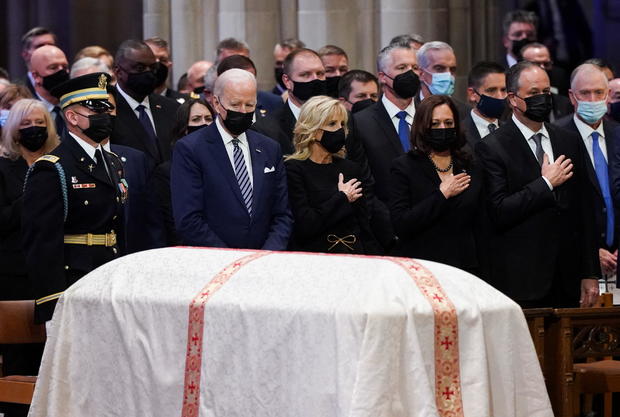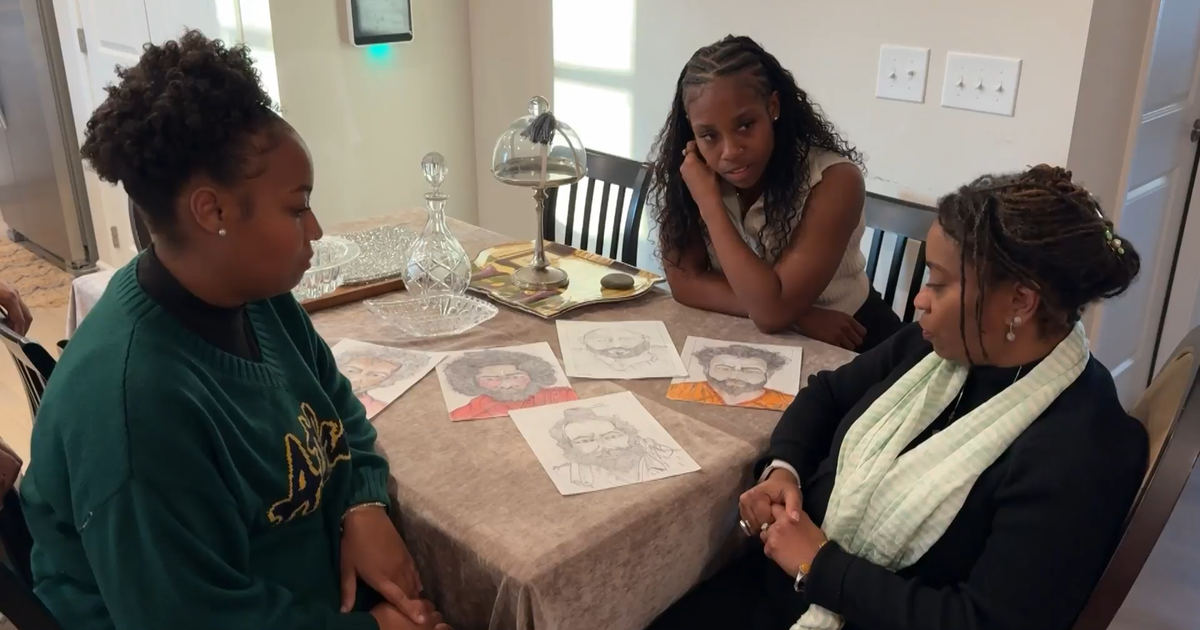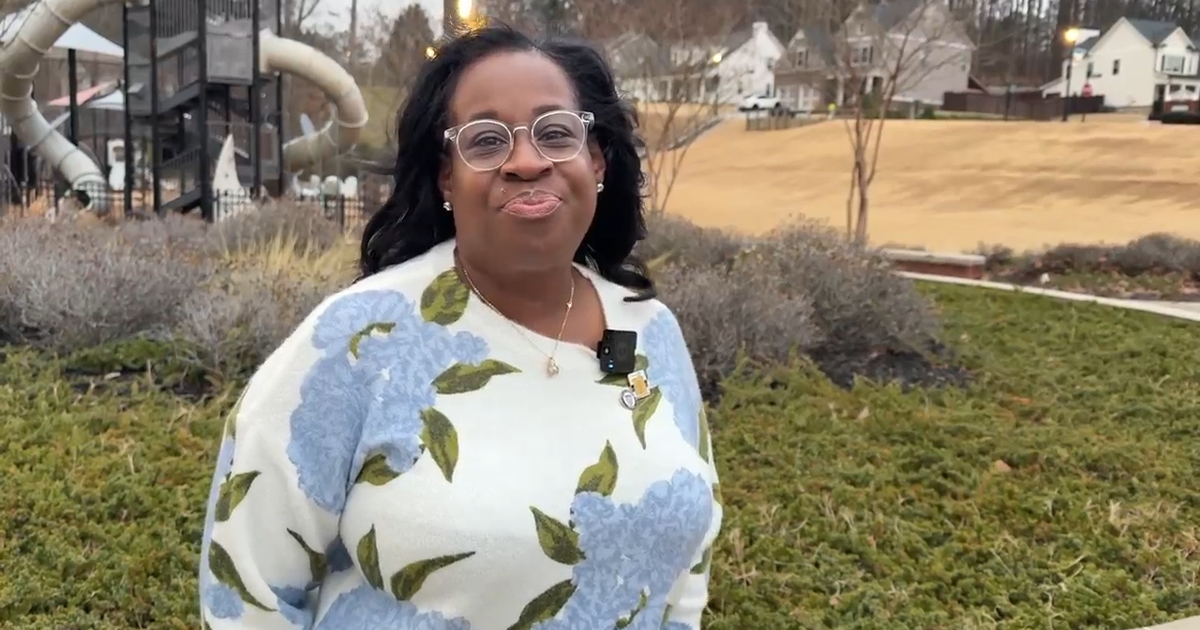Biden praises Dole's heroism and character in funeral at Washington's National Cathedral
Bob Dole, a former Senate majority leader and the last World War II veteran to be a major party's presidential nominee, was honored in a funeral at the National Cathedral on Friday. He died Sunday at the age of 98.
President Joe Biden delivered a eulogy praising Dole's heroism in World War II, suffering grave injuries that would take years of recovery, and his devotion to public service.
"God, what courage Bob Dole had," Mr. Biden said.
The president remembered Dole as a patriot, on the battlefield and in the Congress.
"Bob was a man who always did his duty and lived by a code of honor," Mr. Biden said. "… Bob Dole was a man of his word. He loved his country, which he served his whole life."
The two were both in the Senate at the same time. "We served together for 25 years," Mr. Biden said. "We disagreed, but we were never disagreeable with each other — not one time that I can think of. I found Bob to be a man of principle, pragmatism, and enormous integrity."
He also remembered Dole's humor. Mr. Biden, an avid Amtrak commuter, remembered a vote one year on whether to defund Amtrak. Dole voted against his party, casting the deciding vote to keep funding the service, and he was soon asked why he voted that way.
"'It's the best to get Joe Biden the hell out of here at night so he's not here in the morning,'" Mr. Biden recalled Dole's response, to laughter from attendees.
After the ceremony, Dole's casket was taken to the national World War II Memorial on the National Lawn for a public ceremony honoring his life and service.
Dole's casket will be taken to Kansas, where a weekend ceremony will be held in his hometown of Russell, and his body will lie in state in the Kansas state Capitol.
Dole's body lay in state at the U.S. Capitol on Thursday, and he was honored in a ceremony attended by Mr. Biden, House Speaker Nancy Speaker, Senate Majority Leader Chuck Schumer and Senate Minority Leader Mitch McConnell. Lying in state is an honor generally reserved for high-ranking lawmakers and citizens.
McConnell, a fellow Republican, remembered Dole's sense of humor, saying, "I swear Bob could have been a stand-up comic."
Hailing from Russell, Kansas, Dole grew up during the Dust Bowl and the Great Depression. He was a star athlete in high school who planned to become a doctor, and he enlisted in the Army while at the University of Kansas.
Dole was badly injured in World War II, hit by a blast that ripped apart his shoulder, broke his collarbone and hit his vertebrae. He nearly died twice and lost a kidney to infection. The people of Russell, Kansas, collected money in a cigar box for his recovery. The wounds left him unable to use one arm.
He worried that he would wind up in a wheelchair selling pencils on the street, and as he later told "60 Minutes" correspondent Lesley Stahl, his life became a living nightmare.
"They got me out of bed one day, and the bathroom door was open," said Dole. "There was a mirror on the far wall on the shaving cabinet. I couldn't believe that was Bob Dole. So I didn't look in the mirror. I still don't look in the mirror, except to shave."
Dole later served in Congress for over 30 years, having first been elected to the House in 1960 and then to the Senate in 1968. He resigned his seat in 1996 to focus on his presidential campaign.
One of his signature pieces of legislation was the Americans with Disabilities Act, which was signed into law by President George H.W. Bush on July 26, 1990. The landmark civil rights legislation prohibited discrimination based on disability. Dole, whose maiden Senate speech in 1969 advocated for Americans with disabilities, said he considered the act one of his proudest achievements.




